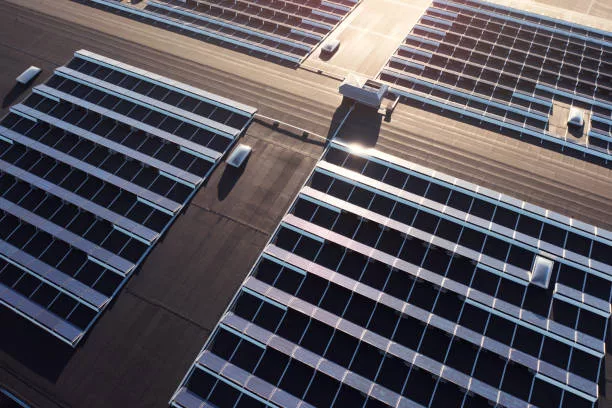The U.S. Department of Energy (DOE) is fueling the transition to a greener future with a substantial investment aimed at streamline the deployment of renewable energy projects. Engaging with local communities and governments, the DOE plans to allocate a robust $22 million for initiatives that will aid in planning, siting, and permitting large-scale clean energy infrastructure.
Catalyzing Renewable Energy Adoption in Local Communities
With the objective of propelling the nation towards President Biden’s ambitious clean energy targets, the DOE has initiated the R-STEP program that pledges $10 million to support six state-specific projects. These endeavors focus on empowering localities with the expertise and tools necessary to integrate large-scale solar, wind energy, and battery storage solutions into their energy matrices. Anticipating an additional infusion of $12 million from the Inflation Reduction Act, this initiative is set to not only accelerate America’s clean energy transition but also inch closer to a net-zero carbon economy by 2050.
The Push for a Clean Energy Economy
As Secretary Jennifer M. Granholm highlighted, the rise of solar, wind, and energy storage systems across the states is unstoppable, predicted to constitute the majority of the country’s new power-generating capacities. The DOE acknowledges that surmounting siting and permitting hurdles is essential to this clean generation progression. Through the R-STEP initiative, local leaders will receive customized assistance to introduce more clean energy solutions.
Key Role of Solar and Wind Energy
To achieve the goal of 100% clean electricity by 2035, solar and wind sources will need to deliver a significant percentage of the US’s energy supply. Given that private land is expected to host many new large-scale renewable developments, state and local jurisdictions play a crucial role in the permitting process. Consequently, R-STEP projects will forge state-tailored resources and assistance programs attuned to the specific stakeholder requirements.
Benefits Beyond Energy
The thoughtful deployment of large-scale renewable projects can yield extensive community benefits, including wealth-building opportunities, job creation, grid resilience, and cost savings on electricity bills. Such projects are particularly transformative for rural and traditionally underserved communities. The DOE-funded state coalitions act as conduits, offering the necessary capacity and foundational knowledge for communities to embrace clean energy swiftly and fairly.
Expansive Collaborative Networks
These collaborative efforts unite diverse groups that influence energy planning – from developmental agencies, institutes of higher education, and industry experts to regulatory boards, agrarian collectives, indigenous tribes, and community organizations. Highlights of the selected state initiatives include:
- Indiana’s Purdue University Extension will establish a center for community engagement and technical support for renewable energy planning.
- Iowa State University Extension and Outreach plans to produce and circulate educational materials, offering language facilitation to ensure inclusivity.
- Michigan’s endeavor will introduce a comprehensive resource hub and extend cost-free technical assistance to local communities.
- In Mississippi, the MDA Energy & Natural Resources Division aspires to craft a solar energy development guide and associated training.
- A technical assistance and education center will serve the Carolinas, addressing local concerns and needs energetically.
- Finally, Wisconsin’s initiative will prioritize rural engagement, educational outreach, and a fair, open siting process for renewable energy and battery storage infrastructure.
The DOE’s Solar Energy Technologies Office and Wind Energy Technologies Office finance the R-STEP program, underscoring the department’s commitment to a sustainable energy landscape. Managed by ENERGYWERX, R-STEP’s first round leverages a novel funding approach via a Partnership Intermediary Agreement crafted by the DOE’s Office of Technology Transitions.

























